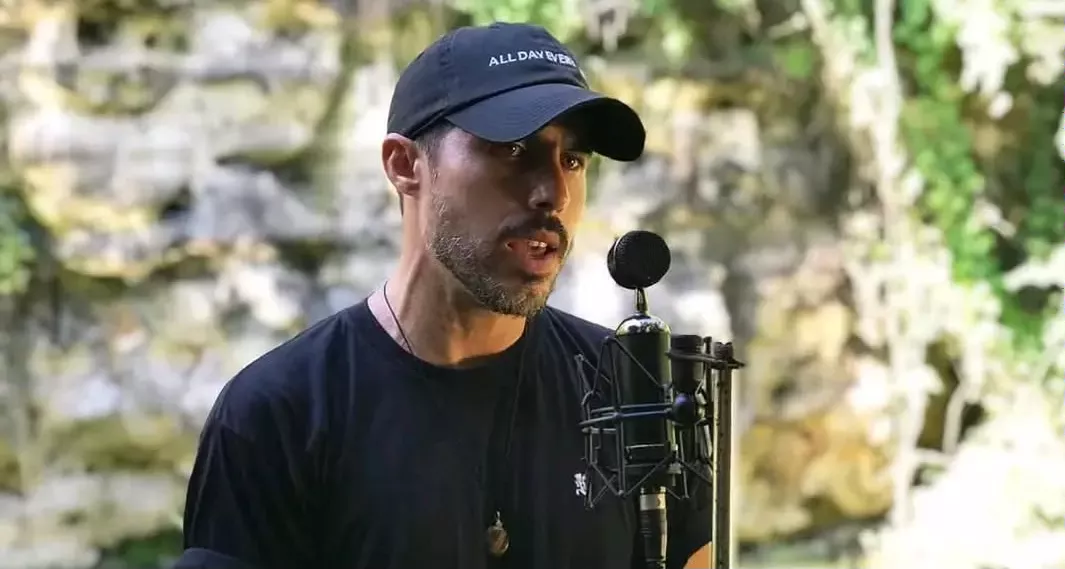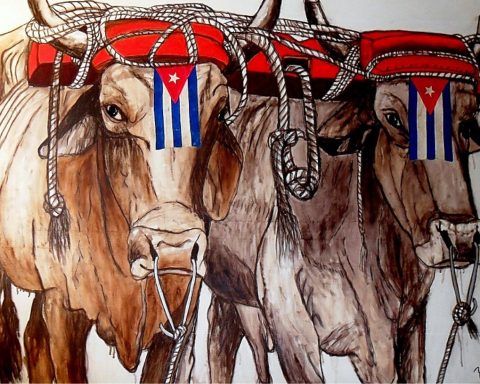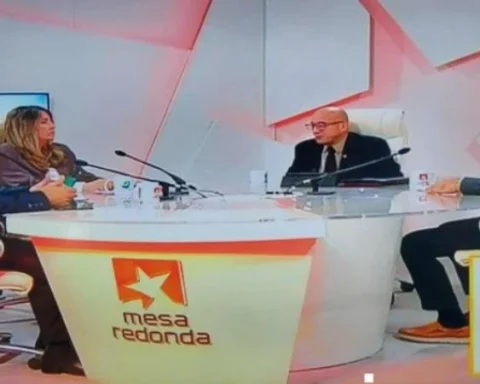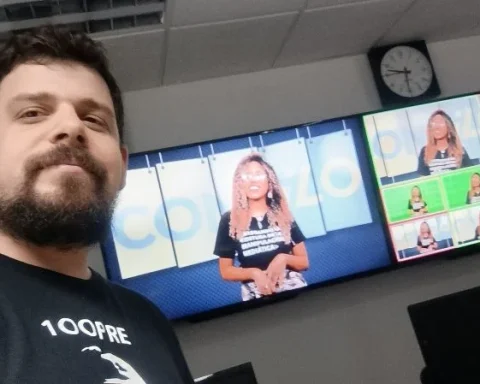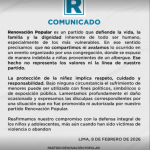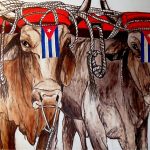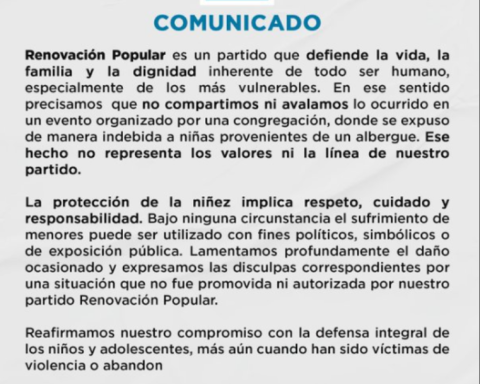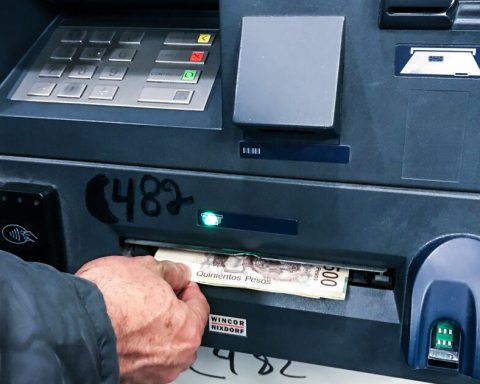HAVANA, Cuba. – René Díaz Pérez is an MC (microphone controller or master of ceremonies) of Cuban hiphop and rap who seeks to convey in his lyrics what he thinks about various topics. However, a large part of his work is dedicated to the social problems of Cuba. Their debut album was Intelligent Internal Product.
When the home studio Real 70 was born in 2001, El Elokuente, René’s stage name, was one of those who turned that space into his acsa.
The Cuban rapper resides on the Island, from where he released his single in 2024 Paying the pricea tribute to political prisoners, mainly those convicted of the protests of July 11 and 12, 2021.
Elokuente is a voracious reader: he is especially interested in philosophy and knowledge, fields that he tries to reflect in his artistic work. His songs include Rectification of horrors, Requiem for Martí, DPEPDPE, Lots of police, little poetry and Nobody escapes from loveamong others. El Elokuente has also collaborated with artists of the genre such as Papa Humbertico, Bárbaro “El Urbano” Vargas, DJ Lápiz, Navy Pro and Silvito “El Libre”.
―What value do you give to composing and making music?
―Music is a way of being alive. I think many creators share that making art is the meaning of life; Without that you lose it a little. There are other things, but that is a big part of a creator’s meaning and, therefore, of mine.
―Which song marked a before and after in your career?
―I couldn’t say which one impacted or liked people more. For me it was a topic called The more I know the man, the more I love my dog. It’s a song with which I think I achieved something, which marked a before and after due to the depth of the things it was saying.
―What is it like to rap in a country with social protests?
―Leading a career with social protests – although my career is more than that – is defined with one word: it is called “insilio”, exiling yourself within your own country. I have lived like this for many years and it has cost me a lot of solitude, working with mental peace, meditation; as well as working a lot on my other passions, which are literature and cinema, all within my house.
I sing very little. I have activated the networks more, for example, Instagram. They are strategies that one takes to be able to survive in a totalitarian regime when one wants to say what one wants. All my topics are not protest; There are many existential, poetic, with philosophical questions that I ask myself, but there are several topics that address the social, totalitarianism and dictatorship. That led me to ostracism, to not belonging to any institution – although I don’t want to either – and to feeling politically marginalized.
―What is the biggest challenge you have faced in these years of your career?
―Continuing to make music within a system that is your enemy is very difficult; You must have a lot of strength, a lot of faith. The biggest challenge is coexisting in a hostile environment. Staying alive, not physics, but the flame of creativity, has been the biggest challenge, but I think I have had a good time, that I have strength and that, in the future, if I get out of here, I don’t think I will have many problems to continue creating and growing much more.
―Is hiphop as a genre destined to give voice to social concerns?
―Yes, but not necessarily, there can be a hiphop that responds to very personal, commercial themes or whatever; It does not have a thematic limit. What much of hiphop does, at least Cuban and Latin hiphop, responds to social issues. There are many problems, and a part of hiphop has always dealt with them. However, for good rap to exist it does not necessarily have to be about a social issue.
-How would you describe the genre? underground in Cuba today?
“I’m not talking about it anymore.” underground. Before it made more sense, because there were no means of dissemination like social networks. I don’t think there are many artists underground, if the concept exists. After social networks we are all exposing ourselves, we want to be heard. It seems to me to be a concept that has expired in a certain way, that is no longer operational.
There are many people who are not visible because the dictatorship does not want it; There would be the answer, at least from the rap movement. It is not for lack of talent, discipline, drive or effort; It is purely because totalitarianism does not allow free speech and makes us artists invisible.
―On what factors do you think the success of an artist in Cuba depends?
-There would be many, but I think that without a dictatorship it would be much easier. It is not the only factor, because there are many, basic ones, such as having talent and discipline. The dictatorship does not create the cultural, spiritual or economic framework in which an artist can develop.
―Are Cuban artists transmitting the right message through their songs?
―It depends on one’s personal criteria of what one believes is “correct”, everyone has a different perception. You do what you can and from where you can, because in the context we are in there is no gap to do much more. There are things that I don’t like, attitudes they take, adhesions, but I leave that to personal discretion, people do what they want and I don’t judge if it is correct or not.
Everyone, when they lie in bed, thinks and has their own measure of things. Personally, I think I am doing the right thing, because there is consonance between what I feel and what I think.
―How supportive are rappers with the reality that the country is experiencing?
―There is a part that is in solidarity ―inside and outside Cuba― with all the disaster that is being experienced. Many protest, make visible… There are others who don’t care, and that does seem quite sad to me. It is a disgrace that a Cuban artist is not sensitive to what is happening in his country.
-How do you want the public to recognize you?
―Sometimes people I don’t know have stopped me on the street; They write to me a lot online telling me that they heard my songs that helped them. I would like to be recognized as a person who tries to help others, who tries to help others seek their own freedom, who helps them think, who opens worlds to them with breadth of thought and sensitivity. Also that they recognized me as a writer and film scriptwriter; I have other aspirations that are not being a rapper.
-Do you have any film or literary projects?
―I would like to be a film scriptwriter, but, above all, a writer. I’m writing a novel and a book of poetry. I have several essays, stories. I feel as much a writer as I do a rapper, or even more of a writer than a rapper sometimes. I have dedicated many years of my life to reading and watching author films, art films. I have published several things, two or three poems. Let’s see if I publish more soon.
After I turned 40, I began my life as a writer without ceasing to be a rapper. Of course, and the movie script thing comes with literature, but with a genre that has its own guidelines. Literature, cinema and music are my three passions. I spend my time listening to or making music, reading, writing or watching movies. I really don’t have enough time between those passions.
―At 40 years old, what motivates you to continue in Cuba?
―Right now I don’t have much motivation in Cuba. What ties me to Cuba are my parents, but not even that anymore; I think I’ll be out of here very soon. My career has taken another direction and a new stage begins for me, if everything goes well.
